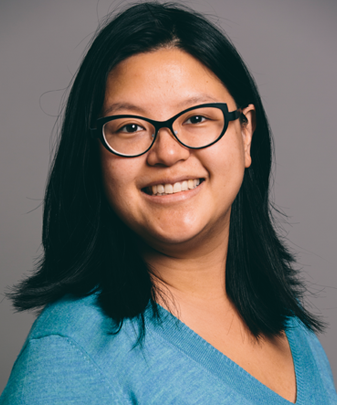Privacy: Bridging the gap between policy and tech
When creating legislation, the voices of technology and policy are not always part of the same conversation.
When creating legislation, the voices of technology and policy are not always part of the same conversation. To create legislation that addresses privacy concerns but does not restrict innovation, Janice Tsai (EPP ’09) has used her expertise in policy and privacy to translate tech needs into effective policy, and vice versa.
Tsai applied for the California Council on Science and Technology’s (CCST) policy fellowship after completing her Ph.D. in Engineering and Public Policy at Carnegie Mellon University. The fellowship matches 10 graduate degree-level scientists with policymakers to serve for one year addressing complex scientific and technical problems in the policy realm.
“It is important to have people who understand both policy and technology so that policy does not overly restrict innovation,” said Tsai. “Those voices need to be part of the conversation when creating legislation because it is hard to undo bad policy.”
After an interview process with different legislative offices, the fellows are placed with offices that fit with their interests and areas of expertise. Tsai worked in the office of then-Senate Majority Leader Dean Florez.
That’s what the goal of the fellowship is: to get those voices heard and place tech-savvy people in legislature.
Janice Tsai, Alumna, Engineering and Public Policy, Carnegie Mellon University
“The highlight of the experience was putting forth legislation for the creation of privacy regulation of the electricity smart grid,” said Tsai. “It’s easy to infer what is going on in someone’s household by the readings sent from its smart meter. That creates a concern for people’s privacy.”
The readings from a smart meter are sent every 15 minutes to the energy provider. It is very easy to tell from these readings when a household wakes up, gets ready in the morning, and then leaves—the electricity goes on, appliances like the coffee maker run, and then it goes off when everyone leaves for the day.
Tsai applied her expertise in privacy while creating policy as a CCST fellow. As part of the inaugural class, the fellows and legislators were unsure of what to expect, but each party found their participation to be extremely valuable.
“We blew their expectations out of the water—in a very positive way,” said Tsai. “While offering our expertise, we also worked in a humble way. We were able to apply our knowledge while gaining valuable policy knowledge.”

Source: Janice Tsai
Now, seven years later, Tsai works at Microsoft as a privacy manager for Windows. Her job requires balancing requirements and restrictions between product and engineering groups and lawyers, working with teams on how to implement products within the constraints of privacy policy.
“It’s still that translation between tech and policy,” said Tsai.
Tsai stresses the importance of tech voices in creating policy. Once bad policy is implemented, it is hard to undo. To fix this, she says that engineers and policymakers need to be in the same room, having that conversation.
“That’s what the goal of the fellowship is,” said Tsai. “To get those voices heard and place tech-savvy people in legislature.”
While at CMU, Tsai was very active with the Graduate Student Association and served as vice president of Academic Affairs. Tsai also credits her advisor, Professor Lorrie Cranor (EPP, CyLab, and School of Computer Science), as a valuable advisor and mentor.
“As the mother of three children, an avid quilter, and the recently appointed Chief Technologist for the Federal Trade Commission (FTC),” said Tsai, “she has always been both a mentor and an inspiration.”
Tsai also has a graduate degree in Library and Information Science and serves on the advisory board to the American Library Association Office of Information Technology Policy.
